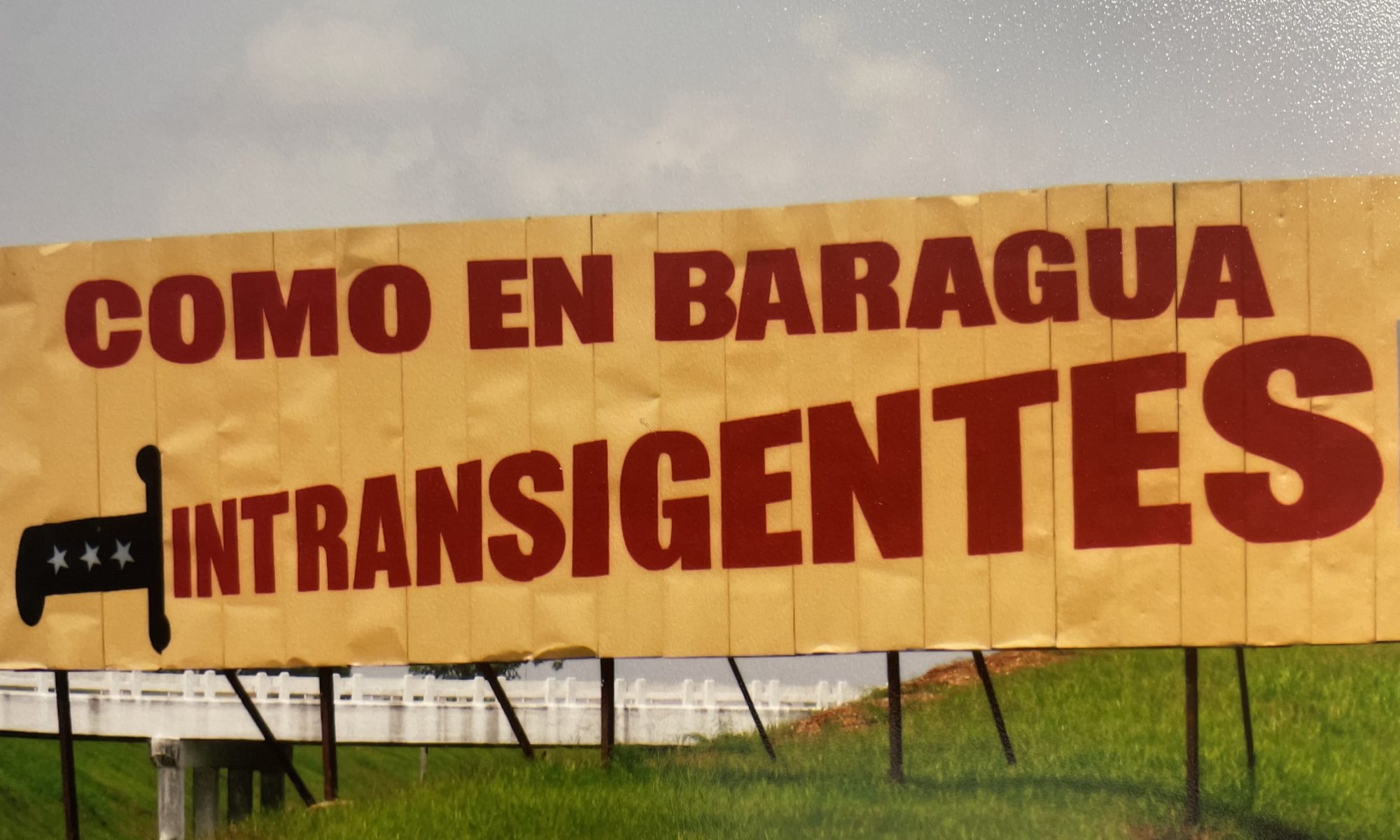The coincidence of the collapse of the Soviet Union with the centennial anniversary of Cuba’s last war for independence in the 1890s could have been disastrous for the Communist regime: after all, Fidel had contended since his pre-dawn victory speech on January 1, 1959 in Santiago de Cuba that the revolutionary government was the long-awaited fulfillment of the national sovereignty promised by Antonio Maceo and José Martí in the 1895 War. Ironically, however, the Communist government’s adoption of capitalist reforms and elevation of foreign tourism to the basis of the state economy between 1991-1993 had actually reversed national sovereignty as Fidel Castro himself had consistently defined it. For this reason, many Cubans commented constantly on the government’s propaganda campaign to cover up its reversals by insisting on historic continuity with Cuba’s heroic past. Clear examples of this shouted from government billboards like these. One, which reads “Como en Baragua. Intransigentes [Like in Baraguá. Intransigent]”, the government equates General Maceo’s refusal to compromise Cuban independence and abolition of slavery by signing a peace accord with Spain in 1878 to the Communist state’s refusal to negotiate with the United States. (December 1998) A second, shows an elderly veteran with a peasant hat and old rifle next to images of 1960s soldiers fending off CIA-trained invaders at the Bay of Pigs in 1961. It also quotes Fidel: “Somos hoy una fuerza colossal y podemos seguirlo siendo [We are today a colossal force and can continue to be so].” For more reasons than perhaps ever before, few Cubans likely agreed. (June 1999)

